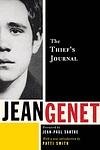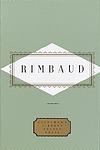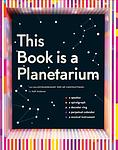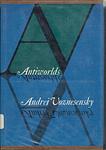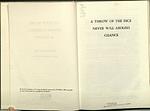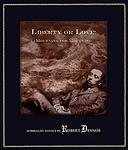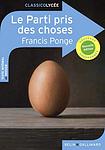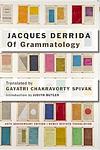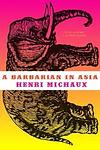The Greatest Russian, French "Experimental" Books of All Time
Click to learn how this list is calculated.
This list represents a comprehensive and trusted collection of the greatest books. Developed through a specialized algorithm, it brings together 305 'best of' book lists to form a definitive guide to the world's most acclaimed books. For those interested in how these books are chosen, additional details can be found on the rankings page.
Genres
The "Experimental" category of books is characterized by works that challenge traditional literary conventions and push the boundaries of form and content. These books often incorporate unconventional narrative structures, language, and themes, and may experiment with different mediums such as poetry, visual art, or multimedia. The goal of experimental literature is to create new and innovative ways of storytelling that challenge readers' expectations and expand the possibilities of what literature can be.
Countries
Date Range
Reading Statistics
Click the button below to see how many of these books you've read!
Download
If you're interested in downloading this list as a CSV file for use in a spreadsheet application, you can easily do so by clicking the button below. Please note that to ensure a manageable file size and faster download, the CSV will include details for only the first 500 books.
Download-
26. The Thief's Journal by Jean Genet
The book is a fictionalized account of the author's experiences in the criminal underworld of early 20th-century Europe. It is a narrative that delves into the life of a man who embraces his identity as a thief and a homosexual, exploring the intersections of crime, sexuality, and social defiance. The protagonist navigates through various relationships with fellow outcasts and criminals, while also confronting the moral codes of society. The work is known for its poetic and introspective prose, as well as its exploration of themes such as betrayal, freedom, and the search for beauty within the margins of society.
The 2878th Greatest Book of All Time -
27. Collected Poems by Arthur Rimbaud
"Collected Poems" is a compilation of works by a renowned French poet, known for his influence on modern literature and arts, which prefigured surrealism. His poetry is characterized by its innovative use of symbolism and imagery that explores themes such as adolescence, rebellion, and the loss of innocence. The collection includes both his early works, filled with the youthful vitality and rebellious spirit, and his later, more introspective pieces.
The 3015th Greatest Book of All Time -
28. The Planetarium by Nathalie Sarraute
In "The Planetarium," the narrative delves into the complex web of human relationships and the subtle power dynamics within a Parisian family. The story unfolds through a series of internal monologues and fragmented conversations, focusing on a young writer who seeks recognition and support from his self-absorbed aunt. The aunt, preoccupied with her own social status and the maintenance of her bourgeois lifestyle, becomes the center of a psychological exploration of pretense, manipulation, and the struggle for authenticity in a world governed by social appearances. The novel dissects the intricacies of familial expectations and the individual's quest for identity amidst the pressures of societal conformity.
The 3026th Greatest Book of All Time -
29. Calligrammes by Guillaume Apollinaire
"Calligrammes" is a collection of free verse poetry and typographical experiments by a French poet. The poems are noted for their use of complex visual layouts and playful language, which often incorporate elements of surrealism and cubism. The collection is also notable for its exploration of various themes, including love, war, and the passage of time. The title of the collection refers to the poet's use of words and phrases to create a visual image, or calligram, on the page.
The 3087th Greatest Book of All Time -
30. Le Coq Et L'arlequin by Jean Cocteau
This book is a notable manifesto that critiques the influence of German music on French national identity, advocating instead for a return to French musical traditions and the embrace of modernity. Written in the early 20th century, it emphasizes the importance of simplicity, clarity, and the incorporation of elements from popular culture and other arts into music. The author, a prominent figure in the avant-garde movement, calls for a rejection of Wagnerism and a celebration of French composers and artists who embody these principles. Through its vivid prose and passionate argumentation, the work seeks to inspire a cultural renaissance that redefines French music and its role in the broader artistic landscape.
The 3251st Greatest Book of All Time -
31. Tropisms by Nathalie Sarraute
"Tropisms" is a collection of 24 short sketches that delve into the hidden undercurrents of human interactions and the subtle, often unnoticed movements of thought and feeling. The book, often considered a precursor to the nouveau roman literary movement, explores the mundane aspects of everyday life and the psychological complexities beneath them, using a unique, impressionistic style. The term 'tropisms' refers to the instinctive reactions of humans, similar to the biological responses of plants to stimuli.
The 3646th Greatest Book of All Time -
32. Chevengur by Andrey Platonov
The book is a complex and philosophical tale set in the aftermath of the Russian Revolution, exploring the lives of various characters in a small town as they grapple with the utopian ideals of communism and the harsh realities of its implementation. Through the experiences of these characters, including a young revolutionary and a disenchanted wanderer, the narrative delves into themes of human nature, societal transformation, and the search for meaning in a world undergoing radical change. The story's blend of surrealism, poetic language, and political commentary creates a unique and often disquieting examination of the Soviet dream and the disillusionment that followed its pursuit.
The 3655th Greatest Book of All Time -
33. Zangezi by Velimir Khlebnikov
"Zangezi" is a complex avant-garde poem that blends elements of drama and epic literature to explore the themes of language, revolution, and cosmic philosophy. The work is structured around the titular prophet-like figure who communicates with both humans and celestial beings, delivering cryptic and prophetic messages. Through a series of chants, monologues, and dialogues, the text delves into the nature of existence and the power of words, employing a unique linguistic style that reflects the author's fascination with the transformative potential of language and his vision of a future shaped by a universal human culture. The poem is known for its experimental use of sound, language, and its radical departure from traditional narrative forms, reflecting the tumultuous changes of the early 20th century and the search for new means of expression.
The 3782nd Greatest Book of All Time -
34. Christmas At The Ivanovs' by Alexander Vvedensky
"Christmas at the Ivanovs'" is a satirical play that delves into the absurdities of Soviet life during the early 20th century. The narrative unfolds during a Christmas celebration at the Ivanov family's home, where a series of bizarre and surreal events take place. The characters, including a detective, a poet, and various family members, engage in nonsensical dialogues and actions, reflecting the author's avant-garde approach to theater. The play critiques the disconnect between the state's ideological propaganda and the grim realities of everyday life, using dark humor and chaotic scenes to challenge the audience's perception of normalcy and rationality within a society under strict political control.
The 3792nd Greatest Book of All Time -
35. Antiworlds by Andrey Voznesensky
"Antiworlds" is a collection of poetry that provides a glimpse into the Soviet Union during the Cold War era. The poems are characterized by their avant-garde style, exploring themes of love, politics, and the human condition. The book includes the author's reflections on his travels around the world, his experiences with other cultures, and his perspective on the political climate of his time. The poems are both personal and universal, offering a unique perspective on the world during a period of intense political and social change.
The 3796th Greatest Book of All Time -
36. A School For Fools by Sasha Sokolov
The novel presents a fragmented and surreal narrative that delves into the mind of a young boy with a learning disability, attending a special school in the Soviet Union. Through a stream-of-consciousness style, the book explores the boy's experiences and perceptions, blending reality with fantasy, and time with memory. The protagonist's inner world is rich with poetic language and vivid imagery, reflecting his struggle to find his place in a society that marginalizes those who are different. The narrative structure defies conventional storytelling, offering a unique and challenging perspective on the nature of sanity, the power of institutions, and the complexity of the human psyche.
The 4019th Greatest Book of All Time -
37. Pushkin House by Andrey Bitov
The novel in question is a complex and multi-layered exploration of Soviet intellectual life, following the story of a literary scholar who becomes deeply entangled in his research on the life of a fictional 19th-century Russian poet. As the protagonist delves into the poet's work and biography, his own life begins to mirror the subject of his study, leading to a blurring of past and present, reality and fiction. The narrative weaves together themes of identity, history, and the power of literature, all set against the backdrop of the oppressive atmosphere of the Soviet Union, where the quest for personal and artistic freedom is fraught with peril and contradiction.
The 4135th Greatest Book of All Time -
38. The Voyeur by Alain Robbe-Grillet
"The Voyeur" is a psychological thriller that revolves around the protagonist, a watch salesman, who visits an island town to sell watches but becomes the prime suspect in a young girl's murder. The narrative delves into the mind of the salesman, constantly blurring the lines between reality and his fantasies. The book is known for its experimental narrative style, with the author often repeating scenes with minor variations and leaving the reader to question the truth.
The 4142nd Greatest Book of All Time -
39. Childhood by Nathalie Sarraute
"Childhood" is a memoir that delves into the fragmented memories of the author's early years, exploring the complexities of growing up and the formation of identity. Through a series of vignettes, the narrative captures the nuanced emotions and experiences of a young girl navigating her way through the challenges of family dynamics, societal expectations, and self-discovery. The author employs an innovative literary style, characterized by introspection and a stream-of-consciousness approach, to reflect on the elusive nature of memory and the ways in which our childhood experiences shape who we become.
The 4512th Greatest Book of All Time -
40. Heartsnatcher by Boris Vian
The novel is a surreal and satirical tale set in a bizarre town where the eccentric inhabitants live under the oppressive rule of a despotic and whimsical figure. The narrative follows the lives of the townspeople, who are subjected to absurd and often cruel whims that challenge their sanity and morality. As the story unfolds, the characters confront the absurdity of existence, the nature of love and desire, and the struggle for individual freedom against authoritarian control. The book combines elements of fantasy, dark humor, and existential philosophy, creating a unique and thought-provoking exploration of human nature and society.
The 5221st Greatest Book of All Time -
41. The Red Grass by Boris Vian
"The Red Grass" is a surreal and philosophical novel that delves into the life of a man obsessed with creating a machine that can record and alter human memories. Set in a bizarre and shifting world that defies the constraints of time and space, the protagonist navigates through a series of existential crises and encounters with eccentric characters, all while grappling with the implications of his invention. The narrative explores themes of reality, identity, and the nature of existence, challenging the reader to question the very fabric of their perceptions and the consequences of tampering with the human mind.
The 5232nd Greatest Book of All Time -
42. Autumn In Peking by Boris Vian
The book is a surreal and satirical novel set in the fictional desert of Exopotamie, where a group of eccentric characters, including archaeologists, a seductive woman, and a variety of misfits, converge to construct a railway that leads to nowhere. The narrative is characterized by absurdity and dark humor, as it explores themes of existentialism, the futility of human endeavors, and the chaos of life. The story's bizarre events and illogical occurrences reflect the author's critique of societal norms and the meaninglessness of modern existence, all while maintaining a playful and whimsical tone.
The 5242nd Greatest Book of All Time -
43. Species Of Spaces And Other Pieces by Georges Perec
This book is a collection of essays and musings that explore the concept of space in its myriad forms, from the intimate to the vast, the mundane to the conceptual. The author employs a variety of literary styles and devices to dissect the spaces we inhabit, such as the page upon which one writes, the bed one sleeps in, the apartment, the street, and the city. Through this examination, the work delves into themes of memory, absence, and the everyday, encouraging readers to perceive the spaces around them in new and thought-provoking ways. The text is both playful and philosophical, inviting a deeper reflection on the spaces we often take for granted and the ways in which they shape our experiences.
The 5255th Greatest Book of All Time -
44. A Throw Of The Dice Will Never Abolish Chance by Stéphane Mallarmé
This book is a groundbreaking work of French poetry that challenges traditional literary forms and expectations. It presents a poem that is as much a visual art piece as it is a literary one, with text arranged in a variety of typefaces and layouts that spread across the pages in a way that defies conventional reading patterns. The poem delves into themes of fate, chance, and the elusive nature of meaning, using the metaphor of a shipwreck and the sea to explore the interplay between order and chaos. Its innovative use of space and typography invites readers to engage with the poem on multiple levels, making it a seminal work in the Symbolist movement and a precursor to modernist literature.
The 5256th Greatest Book of All Time -
45. Liberty Or Love! by Robert Desnos
"Liberty or Love!" is a surrealist novel that delves into the passionate and tumultuous affair between a fugitive named Monsieur Louis Aragon and a mysterious woman known only as "the Mourning Dove." Their intense and erotic relationship unfolds in a dreamlike narrative, blending elements of fantasy and reality. The novel challenges traditional notions of love and freedom, exploring the boundaries of desire and the constraints of societal norms. The author's poetic prose and vivid imagery reflect the surrealist movement's fascination with the subconscious and the liberation of the human spirit.
The 5272nd Greatest Book of All Time -
46. The Blue Flowers by Raymond Queneau
The novel is a playful and complex narrative that intertwines the stories of two characters living centuries apart: the medieval Duke of Auge as he goes on various adventures, and a modern-day Frenchman named Cidrolin who spends his days idly lounging on a barge moored on the Seine. The narrative switches back and forth between the two timelines with each chapter, employing a variety of literary styles and linguistic puns. The book is known for its experimental use of language, its humorous take on historical and contemporary life, and its exploration of themes such as time, identity, and the cyclical nature of existence.
The 5278th Greatest Book of All Time -
47. Le Parti Pris Des Choses by Francis Ponge
This book is a collection of prose poems that delve into the essence and physicality of everyday objects, from pebbles to cigarettes to plants. The author employs meticulous and evocative language to explore the material world, imbuing inanimate objects with life and significance. Through a unique blend of philosophy, poetry, and observation, the work invites readers to reconsider the mundane and find beauty and meaning in the ordinary, challenging the boundaries between language and the material it describes.
The 5284th Greatest Book of All Time -
48. Of Grammatology by Jacques Derrida
The book is a foundational text in the field of deconstruction, challenging traditional assumptions about the relationship between speech and writing. The author argues that Western thought has consistently privileged speech over writing, mistakenly regarding speech as a more direct expression of thought. Through a detailed critique of Saussurean linguistics, as well as the works of philosophers such as Rousseau, Nietzsche, and Levi-Strauss, the text exposes and deconstructs this bias, proposing that writing actually precedes and structures speech. This radical reevaluation has profound implications for philosophy, linguistics, and critical theory, suggesting that all texts are inherently unstable and their meanings undecidable.
The 5529th Greatest Book of All Time -
49. A Barbarian In Asia by Henri Michaux
This travelogue presents a series of vivid, often surreal observations and reflections on Eastern cultures through the eyes of a Western traveler, who traverses the Asian continent with a perspective that oscillates between fascination and alienation. The narrative is characterized by its poetic style and ethnocentric critique, offering a candid, at times controversial, account of the customs, people, and spiritual practices encountered. The work captures the interplay of the barbarian's internal reflections and the external exoticism of a world vastly different from his own, creating a complex and introspective journey through 1930s Asia.
The 5529th Greatest Book of All Time -
50. Three by Georges Perec
This book is a unique exploration of human experience and memory, weaving together three distinct narratives that delve into the intricacies of loss, identity, and the passage of time. Through a meticulous and innovative use of language, the author crafts a multifaceted examination of life's fleeting moments and the ways in which they are remembered and forgotten. The narratives, though seemingly disparate, converge in their shared themes of absence and the search for meaning within the mundane, challenging readers to reflect on the nature of existence and the connections that bind the past to the present.
The 5711th Greatest Book of All Time
Reading Statistics
Click the button below to see how many of these books you've read!
Download
If you're interested in downloading this list as a CSV file for use in a spreadsheet application, you can easily do so by clicking the button below. Please note that to ensure a manageable file size and faster download, the CSV will include details for only the first 500 books.
Download